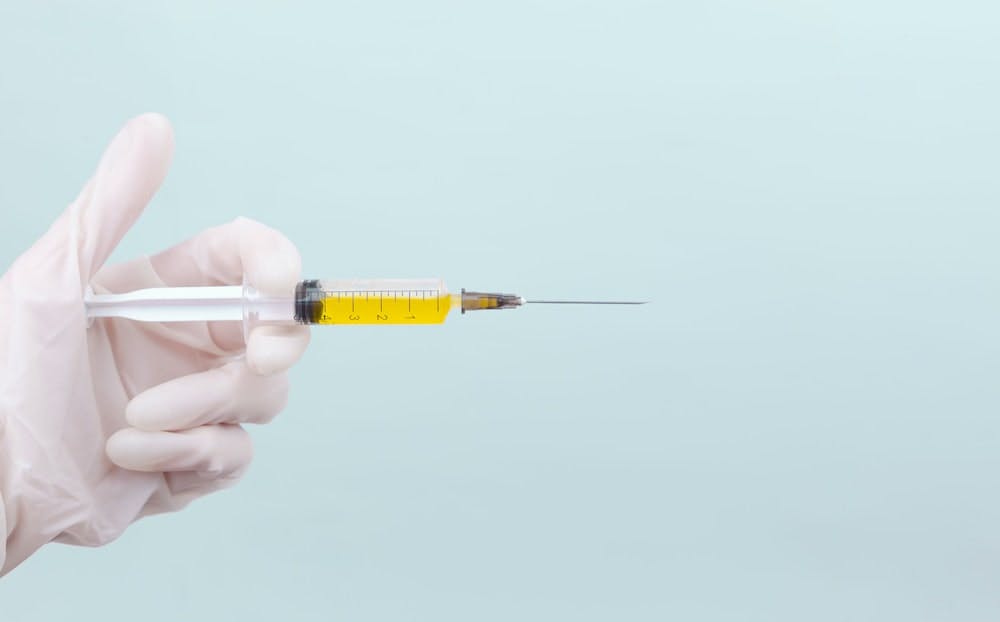What is anti D and why might I need it?
Friday 24th February 2023
What is anti D and why might I need it?
Your health care provider may have mentioned something called Anti D and told you that you'll need to have it because you've got a certain blood group and this could affect your baby or any future babies. Perhaps that's as far as the conversation went and you're left wondering what it actually is, how it helps and why you need it but your friend, sister, mum didn't. Below I have put together various bits of information that may be useful to you, so that you can make an informed decision regarding anti D. We always want to know what we're putting in our bodies when we're pregnant, right!?
What is Anti D?
Anti D is offered to pregnant people who have rhesus negative blood and are carrying a rhesus positive baby. Sometimes it is offered to pregnant people where the blood group of the baby is unknown however there is a test that can be carried out to confirm the baby's blood group. By having Anti D the pregnant person won't make their own anti bodies, having anti bodies in their body is known as being sensitised. Anti D is offered to women routinely at certain weeks of pregnancy but also following a potential sensitising event, such as a vaginal bleed.
Anti D is a type of medication made from blood pooled from lots of different people, women and men. It is a blood product and therefore carries the small risk of viral transmission. It is prophylactic, which is a fancy way of saying 'just in case' because it is given to prevent any serious complications in a baby (including brain damage and death) in any possible future pregnancies. It does not directly benefit the mother or the baby she is carrying. There is little research to determine the long term effects on the mother or the baby she is carrying or to determine the chance of becoming sensitised without it.
History of Anti D
It was first administered in 1964 and some of the first donors were women who had been affected by haemolytic disease of the foetus and newborn (HDFN). They had had babies who had serious complications or had sadly died. These women wanted to help other women by donating their blood that was already sensitised. It was chosen by Time magazine as one of the top ten medical achievements of the 1960s. More recently Anti D is donated by many different people, including men and women who just want to help.
When will I be offered Anti D?
If you have rhesus negative blood you will be offered Anti D routinely at around 28-30 weeks pregnant. You will also be offered Anti D if you have something considered a 'sensitising event'. This could be a vaginal bleed, a fall, a knock to your bump, a car accident or it could also be from a procedure you choose to have such as amniocentesis or external cephalic version. It will be offered following an ectopic pregnancy, termination or miscarriage depending on gestation and management. Anti D will also be offered once your baby is born if your baby is rhesus positive.
For more information on Anti D I highly recommend Dr Sara Wickham's book Anti D Explained.